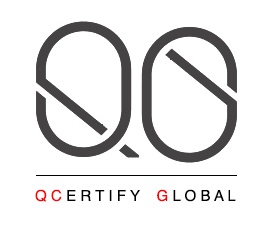As the global business environment evolves, so does the landscape of ISO certification. Staying ahead of these changes is crucial for organizations aiming to maintain their competitive edge and commitment to quality. In this article, we explore emerging trends and predictions shaping the future of ISO certification.
1. Digital Transformation and ISO Certification
Digital transformation is revolutionizing every industry, and ISO certification is no exception. The integration of advanced technologies such as artificial intelligence (AI), machine learning, and big data analytics is expected to streamline certification processes, making them more efficient and accurate.
Predicted Impacts:
Automated audit processes using AI.
Real-time data collection and analysis for continuous compliance.
Enhanced traceability and transparency through blockchain technology.
2. Increased Focus on Cybersecurity
With the rising prevalence of cyber threats, ISO standards related to information security, such as ISO 27001, are becoming increasingly vital. Organizations are prioritizing robust cybersecurity measures to protect their data and systems, making ISO 27001 certification a critical component of their risk management strategy.
Future Trends:
Enhanced cybersecurity protocols in response to evolving threats.
Integration of ISO 27001 with other security frameworks.
Increased demand for certification in cloud security and IoT security.
3. Sustainability and Environmental Responsibility
Sustainability is a growing concern for businesses and consumers alike. ISO standards such as ISO 14001 for environmental management are gaining prominence as organizations strive to minimize their environmental impact and promote sustainable practices.
Emerging Trends:
Expansion of ISO standards related to sustainability and social responsibility.
Greater emphasis on carbon footprint reduction and resource efficiency.
Development of new standards addressing circular economy principles.
4. Remote Auditing and Virtual Assessments
The COVID-19 pandemic accelerated the adoption of remote work and virtual assessments. This shift is likely to continue, with remote auditing becoming a standard practice for ISO certification. Virtual assessments offer flexibility, reduce travel costs, and enable auditors to assess compliance without being physically present.
Advantages of Remote Auditing:
Increased accessibility and convenience.
Enhanced use of digital tools for documentation and evidence gathering.
Potential for more frequent and timely audits.
5. Integration of Multiple ISO Standards
Organizations are increasingly seeking to integrate multiple ISO standards to streamline their management systems and achieve comprehensive compliance. This trend is driven by the desire to reduce complexity, improve efficiency, and leverage synergies between different standards.
Integration Benefits:
Simplified documentation and processes.
Unified approach to risk management and continuous improvement.
Cost savings through consolidated audits and assessments.
6. Customized and Industry-Specific Standards
As industries become more specialized, there is a growing demand for customized and industry-specific ISO standards. These tailored standards address unique industry challenges and requirements, providing more relevant and effective frameworks for compliance.
Examples of Industry-Specific Standards:
ISO 13485 for medical devices.
ISO 22000 for food safety management.
ISO/TS 16949 for automotive quality management.
7. Enhanced Focus on Supply Chain Management
Supply chain disruptions have highlighted the importance of robust supply chain management. ISO standards related to supply chain security and resilience, such as ISO 28000, are gaining traction as organizations seek to mitigate risks and ensure the continuity of their supply chains.
Future Supply Chain Trends:
Greater emphasis on supplier audits and certifications.
Integration of sustainability and ethical sourcing into supply chain standards.
Development of new standards addressing supply chain digitization and resilience.
8. Greater Emphasis on Continuous Improvement
Continuous improvement is a core principle of ISO standards, and its importance is set to increase. Organizations will need to adopt a proactive approach to identifying opportunities for improvement, leveraging data and feedback to drive innovation and enhance their management systems.
Continuous Improvement Strategies:
Implementation of advanced analytics for performance monitoring.
Regular training and development programs for employees.
Adoption of agile methodologies for process optimization.
Conclusion
The future of ISO certification is shaped by technological advancements, evolving cybersecurity threats, and a growing emphasis on sustainability and supply chain resilience. Organizations that stay abreast of these trends and adapt their strategies accordingly will be well-positioned to maintain compliance, drive continuous improvement, and enhance customer satisfaction.
Embracing digital transformation, integrating multiple standards, and focusing on industry-specific requirements will be key to navigating the evolving landscape of ISO certification.
By proactively addressing these emerging trends, organizations can ensure they remain at the forefront of quality management and operational excellence.






